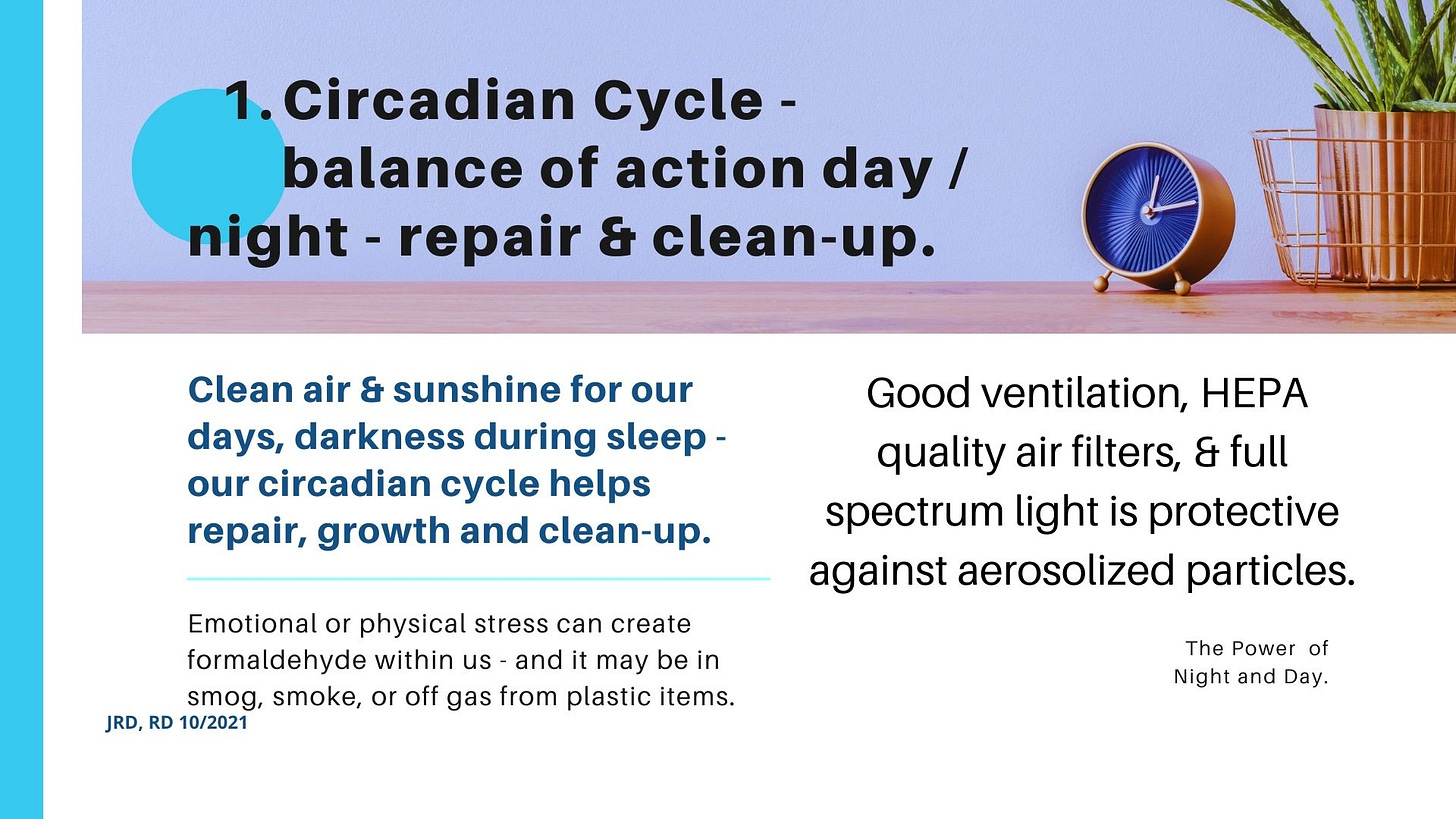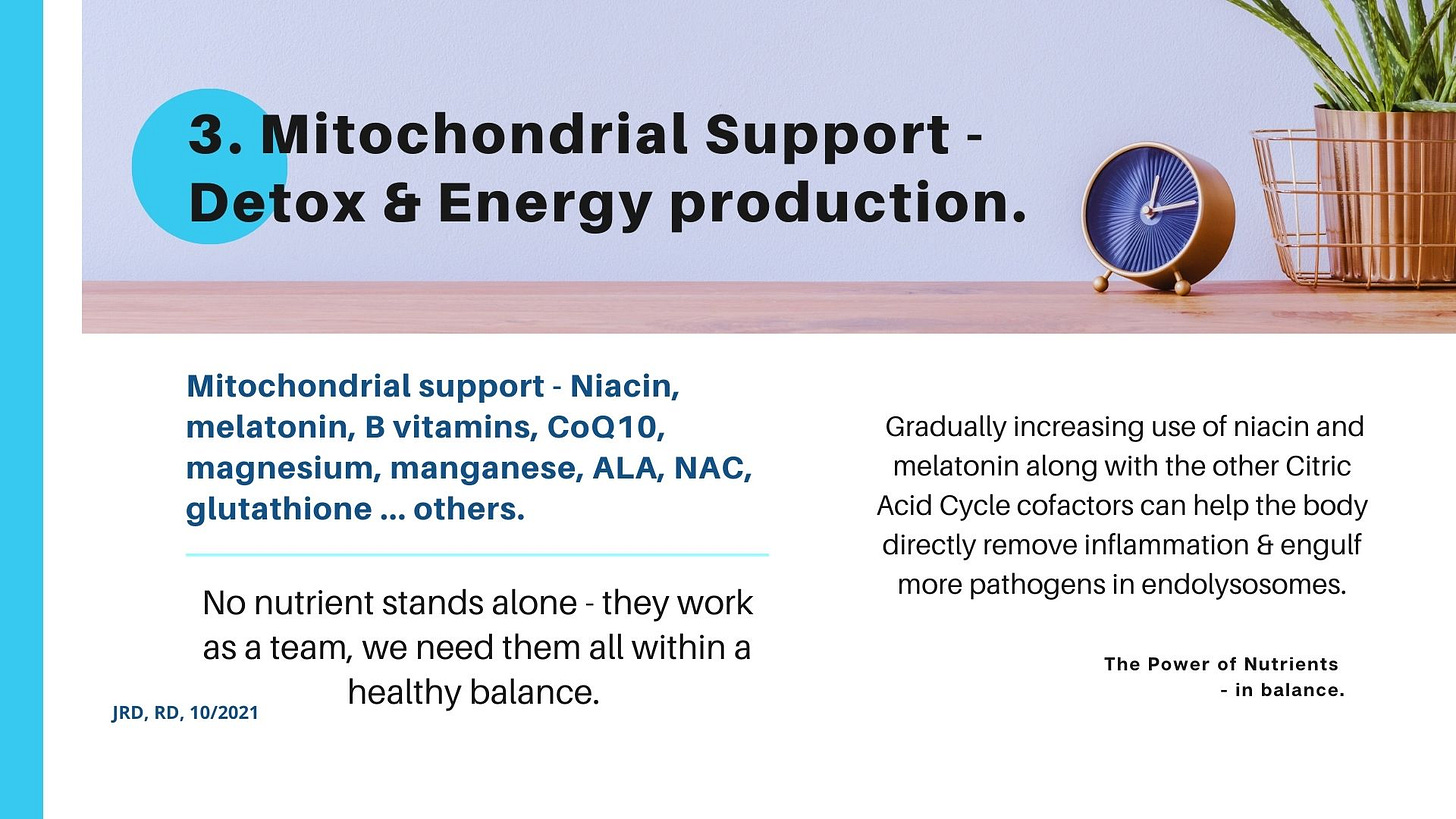Daily reminder that cognitive health is really valuable & to maintain it we need to support our Mitochondria.
What is a spoon?
Today’s ‘Conversation with Alzheimer’s’
Me: “This is a spoon. You can reach in there with it and pull some food out. It is an amazing invention.”
My mother: clink, clink, clink. <Success - she is eating the hard to reach porridge in the bottom of the mug with a spoon.>
Daily reminder that cognitive health is really valuable. And spoons are an amazing invention. Thought puzzler: Which came first: the shovel or the spoon?

*This was an unposted draft - today my mother tried to use a pen to scoop up the porridge on the bottom of her cup. I got her a spoon and she remembered how to use it - success! Caregiving is not easy, but it isn’t easy being cognitively or physically impaired either.
Sometimes we are doing things wrong, just because that is always the way we have done things around here. My mother really cared about healthy diet and exercise but she also likes sweets and the modern high carbohydrate diet balance was her norm. It is common for elderly people to eat less protein, to lose taste for it, but the need for protein is increased as we age - or the need for more throughout the day instead of a larger amount at dinner.
We need to not beat up on ourselves when we try to make changes and we need to be less combative about changes that other people make - sure it seems weird - different, but they may be onto something!
Mitochondrial support -
Our cell’s mitochondria (bacteria like, from our mother’s ovum at our conception), require us to have good circadian cycle health which requires sunshine during the day and blackout dark at night.
Daily movement seems very critical to prevent mitochondria and gut microbiome dysfunction.
A diet balance that is not too high in total fat is needed (not greater than 50-60%) and that is not too high in total saturated fat (not more than 10% of total daily calories).
Emotional or physical stress is harmful. So are excess salicylates or formaldehyde and other toxins; etcetera.
Addition: The Barefoot Healer would add (via a comment):
“I would add that mitochondria are highly susceptible to EMI/EMR exposure, antibiotics (which is why glyphosate is so detrimental as it is firstly and foremost an antibiotic), and nanopollutants. Also the emphasis on proper sweating during daily movement, circadian rhythms, and vagal tone (mitochondria are environmental sensors, exquisitely primed to stress fluctuations), cannot be more critical to address, particularly as an individual ages”
So I will add another couple graphics.
Do the opposite, roughly, of the following list. These negative health factors also seem to cause more deuterium, heavy water, to collect or to be formed and excess deuterium concentration has negative effects on mitochondria.
Mitochondrial Support Nutrients and Cofactors
For supplement dosing, see webpages Nutrients and Cofactors on jenniferdepew.com.
Many nutrients are needed for the health and function of mitochondria and much of modern life including glyphosate can harm mitochondria. Dysfunction of our mitochondria leads to lower energy levels for daily life and risk of cancer and chronic degenerative disease developing is more likely.
There was a question for mitochondrial support information in my comments. My answer: I have lots on the topic but could work on cleaning it up - more streamlined document.
(Part of my pomegranate paper - I do need to finish that) » The Disturbingly Transparent Table is a Table of nutrients depleted by psych meds which also all seem to be critical for mitochondria support and for preventing Alzheimer's damage or schizophrenia symptoms. https://open.substack.com/pub/denutrients/p/disturbingly-transparent-table?r=os7nw&utm_campaign=post&utm_medium=web
Pomegranate products and zinc are supportive of mitochondria in part by supporting a healthier gut microbiome - health of both seems to be connected. Pomegranate & zinc: https://open.substack.com/pub/denutrients/p/pomegranate-for-mitochondrial-support?r=os7nw&utm_campaign=post&utm_medium=web
Mitochondria and microbiome health are connected: https://open.substack.com/pub/denutrients/p/we-are-symbionts-with-our-mitochondria?r=os7nw&utm_campaign=post&utm_medium=web
Just search "mitochondria" in my site archives and a series shows up on mitochondrial support. Movement - our daily movement - also seems essential for mitochondrial function.
Additionally, Graphics I have made about mitochondrial support:
This presentation can be viewed in this post: Nutrients - We need them all! (transcendingsquare.com).
The following graphics are discussed in greater detail in a post on starting high dose niacin use (Substack) and on my webpage Prenatal/Child on jenniferdepew.com.
Happy Day Two of our New Year!
Disclaimer: This information is being provided for educational purposes within the guidelines of Fair Use and is not intended to provide individual health care guidance.
















Thank you for all of the wonderful slides.
I would add that mitochondria are highly susceptible to EMI/EMR exposure, antibiotics (which is why glysophate is so detrimental as it is firstly and foremost an antibiotic), and nanopollutants. Also the emphasis on proper sweating during daily mpvement, circadian rhythms, and vagal tone (mitochondria are environmental sensors, exquisitely primed to stress fluctuations), cannot be more critical to address, particularly as an individual ages.😉🤗